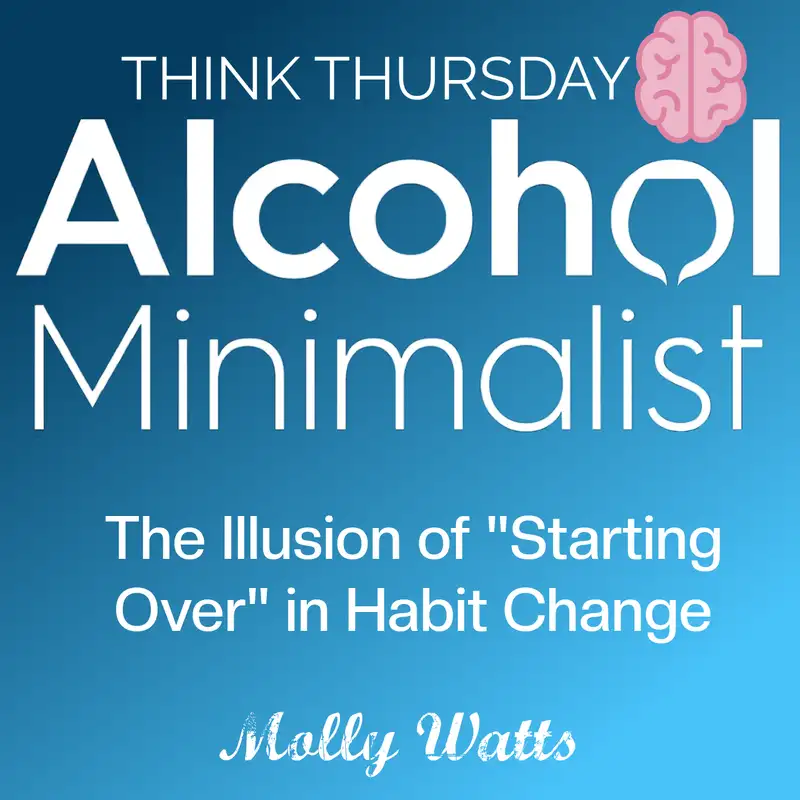Think Thursday: The Illusion of "Starting Over" in Habit Change
In this Think Thursday episode, Molly Watts challenges the deeply ingrained belief that we must “start over” any time we slip up in our habit change journey—especially when it comes to drinking. Drawing from neuroscience, behavior psychology, and the Alcohol Minimalist framework, Molly explains why this mindset is not only emotionally unhelpful but also neurologically inaccurate.
Listeners will learn how to reframe off-plan moments not as failures, but as meaningful data points that contribute to long-term growth and brain change. Whether it’s drinking, eating, spending, or any behavior you’re trying to shift, this episode offers an empowering new narrative: you are not behind, you are evolving.
What You’ll Learn in This Episode:
- Why the idea of “starting over” is a product of traditional recovery models like Alcoholics Anonymous
- How the AA concept of relapse and abstinence has shaped our cultural view of success and failure
- Why your brain doesn't erase progress, but rather integrates and learns from each experience
- How to shift away from shame and into self-compassion without compromising growth
- The role of automaticity in habit formation, according to Dr. Wendy Wood
- How the brain builds resilience through “returning,” not perfection
- A 3-step process to reframe setbacks and keep moving forward
Key Concepts & Tools:
- The Iterative Mindset – Growth is not linear; it's a spiral of adjustment and awareness
- Pause the Narrative – Catch the story you're telling yourself about failure
- Name the Learning – Reflect on the experience with curiosity, not blame
- Make a Micro-Move – Realign in the moment with one small action
- Neuroplasticity – Your brain is always adapting; no step is wasted
- Self-Compassion Science – Dr. Kristin Neff’s research shows kind self-talk leads to more consistent behavior change
Referenced Episode:
Takeaway Quote:
“Let’s drop the idea of Day One. You are not behind. You are learning. You are aligning. You are leading your brain—one choice at a time.”★ Support this podcast ★

